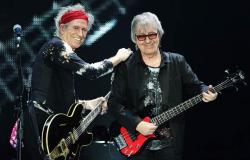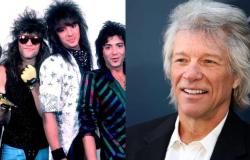
A black woman who spent her childhood in an Oblate nun’s school because she was orphaned as a child. When she was young she made a living as a cleaning worker until, on the stairs of a building located between Laguna and Perseverancia streets in Centro Habana, Obdulio Morales, a renowned composer, heard her singing while she did the work of cleaning. she. Morales invited her to audition for a project called The miracle of Oshún —Yoruba goddess of rivers—. And since then, without musical studies and without a prodigious voice, she became a diva who took over cabarets, television, cinema and theater.
Her success – now her mark – lay in building a character, an indomitable woman, who placed the gestures, attitudes and language of the “underworld” on the Cuban artistic scene. Before and after the Revolution —1959—, Juana Bacallao spoke for and as the blacks, the poor, the unprotected, the marginalized. Who, at the time, were neglected by both the crude capitalism of the 1930s, 1940s and 1950s in Cuba and the socialism that came later. This contempt meant that the social and cultural elites buried what the performance of Juana he saved.
Juana Bacallao not only symbolizes Cuban folklore: the choteo, the debauchery, the revelry. Her greatest merit was, through her character, showing a naked Cuba. That reality, the great enemy of Fidel Castro since he assumed power of the island, was punished: she was relegated for more than three decades to the darkness of the night, to the cabarets. Official culture ignored her work. A truth too heavy for her to be in the spotlight. Not only because of what she represented, but because of her irreverent, unbearable, surprising speech. Juana Bacallao was sincere and she said, in any area, whatever came to her mind, what she really thought, a capital sin in Castroism.
“Juana made herself,” she said of herself to the Associated Press in 2010. A phrase—that defines her—expressed when the Revolution, astutely, reconsidered, returning her to the official public scene. A profit. Throughout the 65 years of Castroism, these rescues of artistic figures who inhabited the cells of cultural ostracism – Antón Arrufat, José Lezama Lima, Delfín Prats, etc. – have been common. The opening of these cells seeks nothing more than to cleanse the intransigent image of the Government and they always end with the same pattern: the presentation of awards that cynically recognize the life’s work of these people—who are already close to death. This was the case of Juana Bacallao, who, at 94 years old, received the National Humor Award.
A few years before the award, at a night party in Havana, Juana Bacallao met my wife, who, upon seeing her, approached her to greet her. They didn’t know each other at all and my wife just wanted to profess admiration for him. After the greeting, the diva asked: “Can you bring me a soda?” “Sure,” my wife responded. “But let it be closed,” Juana Bacallao clarified back, who wanted the can to take to her house.
The shortage that Juana Bacallao suffered is the same that Cubans on the island suffer today, who have once again taken to the streets to demand food and electricity in their homes.
Juana Bacallao died on February 24 at the age of 98. And she leaves the best possible legacy for the construction of the Cuba of the future: to think and express oneself freely.





